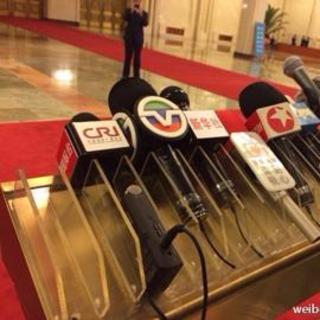
介绍:
In his first government work report to the National People's Congress session, Chinese Premier Li Keqiang also set this year's GDP growth target at around 7.5-percent.
This is in conjunction with the central government's aims in lowering the growth speed in order to continue economic restructuring.
Cao Yuwei has more.
China's GDP growth slowed to 7.7% last year, hitting its lowest level since 1999.
Some expect that this year's figure may drop further, raising concerns of possible "hard landing."
However, most people are supportive to the slow-down.
"As long as it's not too slow, because it could increase jobless rate, and further affect China's stability."
"There is no sense only focusing on GDP figures, while neglecting our pocketbook issues. But we may wait for a long time before getting any feedback."
"Slowing down the GDP growth rate is good for us, as least it can to some extent reduce pollution, even if it takes a while. Anyway later is better than never."
While explaining thinking behind this year's growth target, Premier Li Keqiang emphasizes the following points.
"This target is in keeping with our goal of finishing building a moderately prosperous society in all respects, and it will boost market confidence and promote economic structural adjustment."
Chief economist of China Galaxy Securities Zuo Xiaolei says it is normal for China to develop at a relatively lower speed because of the rippling effect of the global financial tsunami and domestic economic restructuring.
CEO of Red Pagoda Resources, Andy Mok, believes that it's preparation for reform and long term growth.
"The fact that we are seeing the Chinese economy slow down in 2013, I think is not just a huge plus for the long term growth of the economy, but it also signals a confidence by the government that both the country and the Party can withstand the challenges of this new policy shift."
During provincial legislative sessions, held earlier this year, over 20 provinces and municipalities, including Beijing and Shanghai, have reined in their growth targets.
National People's Congress deputy Xiang Xiaomei is from the Guangdong Academy of Social Sciences. She says this is a change in mindset.
"To change the rigidity of GDP into a more elastic restraint on the local governments, or more precisely, an instructive role. This means we are changing the mindset of GDP worship."
Xiang adds growth number is no longer the only way of evaluating the government's performance.
She suggests that the assessment of local officials will be based on new criteria, including resource consumption, environmental cost, work safety and local debt. Putting more emphasis on employment, residents' income, social security and health.
大家还在听

